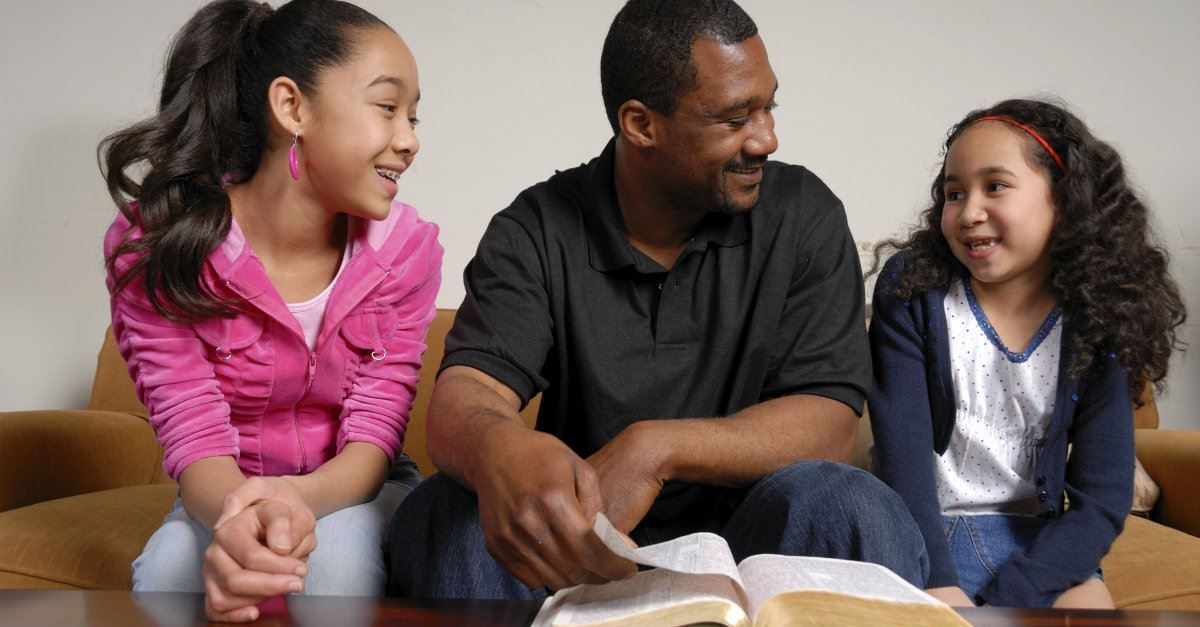
Parenting is deeply personal, and each parent tends to develop their own style over time. Some prefer to allow their children to explore, develop, and function independently with limited supervision. Others are more intentional and protective of their little ones. Psychologists have assigned names such as ‘free-range’ and ‘helicopter’ to various styles, but a new one has started to emerge: ‘snowplow.’
'Snowplow' parents likely started off in the helicopter. Then, they hovered around their children, eventually landing and proceeding to clear everything out of their children’s pathway. These parents, while well-meaning, want to make sure their children have an easy road to success. They use their resources and connections to make it so, removing all the learning opportunities and teachable moments along the way in the process.
Photo Credit: GettyImages/LeeAnnWhite
The Damage of 'Snowplow' Parenting

Working for a nonprofit, I experience this first-hand. We receive numerous calls every month from parents trying to help with class projects or find volunteer opportunities for their high school students—in some cases, even college students. Listen, if you are old enough to drive, vote, serve in the military, or buy alcohol, you are old enough to research and do this on your own, thank you very much.
I’m not the only one who has experienced this. According to a recent New York Times and Morning Consult poll, many parents today continue to fix their kids’ problems well into adulthood.
Here are some alarming numbers from the survey: 76 percent of parents remind their adult children of deadlines they need to meet and 74 percent make appointments for them, including doctor’s appointments. Another study from Bankrate found that half of surveyed parents have sacrificed their own retirement to help their adult children financially!
Photo Credit: Thinkstock
'Snowplow' Parents in Action

A clear example of 'snowplow' parenting has been splashed across front pages and home pages in recent weeks with the celebrity college admissions scandal. Actresses Felicity Huffman and Lori Loughlin, among many others, were accused of paying or otherwise orchestrating admissions into high profile universities for their children. Like many, I was angered and appalled to see how people with means take advantage of the system for their own benefit. But God has a way of knocking us off our judgmental high horse just when we need it. It is so easy to miss the mark as parents if we aren’t careful.
To be clear, breaking the law is wrong; so those accused in this situation—if indeed found guilty—should be held accountable.
But what about the circumstances in our daily lives that are less black and white? Does God have a clear idea about what style of parent we should be? Is it wrong to help our children be successful? And, how much help is too much help?
The purpose of this article isn’t parent-shaming. The goal here is to find that balance of God’s perfect design for parenting which can be found in His Word. Fortunately for us, He has a lot to say about the topic.
Here are four biblical truths that will help us avoid the pitfalls of 'snowplow' parenting.
Photo Credit: GettyImages/emrah-akyıldız
1. Worry less; pray more.

“Do not be anxious about anything, but in everything by prayer and supplication with thanksgiving let your requests be made known to God. And the peace of God, which surpasses all understanding, will guard your hearts and your minds in Christ Jesus.” (Philippians 4:6-7)
Peace—it’s something many of us long for in the midst of the busyness of life. My kids are at that age where we run from point A to point B to point C. Peace seems beyond our grasp as we wrestle with stress, anxiety, and worry.
There’s nothing that will ramp up your worry game like being responsible for keeping other people alive. As parents, we worry about so many things concerning our kids that are outside of our control.
Every time you begin to get anxious or stress over your children, pray instead.
“But seek first the kingdom of God and his righteousness, and all these things will be added to you. Therefore do not be anxious about tomorrow, for tomorrow will be anxious for itself. Sufficient for the day is its own trouble.” (Matthew 6:33-34).
Imagine the difference we—and our kids—would experience if we devoted ourselves to prayer over their lives, instead of worrying and intervening unnecessarily!
Photo Credit: Thinkstock
2. Don’t dominate; give your kids something they can imitate.

“Shepherd the flock of God that is among you, exercising oversight, not under compulsion, but willingly, as God would have you; not for shameful gain, but eagerly; not domineering over those in your charge, but being examples to the flock.” (1 Peter 5:2-3)
While this verse is usually applied to pastors and churches, as parents, we are the shepherds of our own little flocks. Our kids need to be guided and cared for the same way Jesus cares for us, His flock.
This verse gets to the heart of our motivation as parents. Do we want our kids to be successful so we can show them off on social media? Or, is our motivation to live our own lives in such a godly manner that those in our household can’t help but imitate us? God’s design is not for us to domineer—or assert our own will—over our children, but to be their example.
Charles Spurgeon once said, “Train up a child in the way he should go—but be sure you go that way yourself.” We are to be humble leaders of our children, but not servants. We are to provide an example they can follow, but we can’t choose the path for them.
Photo Credit: Thinkstock
3. Train, don’t drain.

“Fathers, do not provoke your children to anger, but bring them up in the discipline and instruction of the Lord.” (Ephesians 6:4)
I remember getting in trouble as a little kid. When my mom would use my full name, I knew she was serious. I do the same with my kids today, and I get a similar feeling when I read this verse.
The use of the word ‘Fathers’ grabs my attention. It’s direct, and I know what follows is going to be serious and important.
God’s intention for us as parents is to provide instruction and discipline for our kids—without needlessly provoking them to anger. This causes me to evaluate how I handle not only the most stressful times, but also the everyday moments. Am I leading and disciplining them in a way that will help them grow? Am I providing instruction that helps them mature into the people God would have them to be? If my actions prohibit their growth, it’s time to reevaluate whether my ‘help’ is in fact helping.
Photo Credit: GettyImages/calcassa
4. Remember: you will never be a perfect parent, but you have a perfect Father.

“Trust in the Lord with all your heart, and do not lean on your own understanding. In all your ways acknowledge him, and he will make straight your paths.” (Proverbs 3:5-6)
Most of us aren’t parenting experts. I know I need all the help I can get. We can read books, articles, and talk to other parents—all of which are certainly helpful. But our omnipotent, omniscient, heavenly Father should be our ultimate source of wisdom.
When we find ourselves at the end of our parenting rope—or even long before we get there—we need to talk to God about it. If we ask Him for the wisdom necessary in each situation, God will give us what we need. It’s not a maybe; it’s a guaranteed promise.
“If any of you lacks wisdom, you should ask God, who gives generously to all without finding fault, and it will be given to you.” (James 1:5)
We just have to trust Him and not try to do it all on our own. If our focus is on God and trusting Him, He will help us navigate parenthood in the best way to bring Him glory and make a difference in the lives of people around us.
Brent Rinehart is a public relations practitioner and freelance writer. He blogs about the amazing things parenting teaches us about life, work, faith, and more at www.apparentstuff.com. You can also follow him on Twitter.
Photo Credit: GettyImages/noipornpan